The Benefits of Investing in Birth – Three Continuing Education
OTs, PTs and SLPs who complete birth – three continuing education courses from ERI are making an investment on an individual and practice-wide level. With our live and on-demand course offerings, you will receive value beyond a renewal of your license. We provide therapists with many resources they use daily in their practice or reference throughout their careers. Our courses will remind you of your love for your profession while helping you provide even better care for your young patients.
In addition to providing better care, attending our CEU courses can give you the knowledge you need to take the next steps in your career. Some of the courses we offer cover topics such as:
- Speech-language pathology: This area concentrates on language, literacy and school-based therapy.
- Occupational therapy: OT includes crucial focus areas such as sensory integration and behavioral approaches.
- Physical therapy: Lessons focus on topics such as neuromuscular impairments gait analysis and torticollis continuing education for physical therapy.
- School-based therapy: Key focus areas include assistive technology, differential learning and developmental disabilities.
Contact us today to register for a course and start improving your patient care.
__________________________________________________________________________________
Loyalty Programs You’ll Love
Take advantage of exclusive loyalty offerings so you can receive discounts and savings on courses throughout the year. Here’s just some ways you can save with ERI:
- Bundle courses and save – the more you purchase, the more you save!
- Group discounts for three or more people on any course
- First time taking a course with us? Take $30 off the price
- Getting ready to take your 4th course with us? You could be eligible for $100 off
- Host a CEU course with your facility and receive discounted rates for staff
3rd Annual Birth to Three Conference 2026
Live webinar
March 26 and 27, 2026
9:30 am EST ▪ 8:30 am CST ▪ 7:30 am MST ▪ 6:30 am PST
Registration is now open for the virtual 2026 Birth to Three Conference. View the full agenda and speaker lineup, plus take advantage of the early bird discount of $100 off the two-day conference.
Birth to Three Ambassadors wanted! Are you an OT, PT, or SLP who loves connecting with therapy communities online? Do you enjoy sharing ideas, learning from others and staying active on social media? If so, we have the perfect opportunity for you to become either a Birth to Three Social Media Ambassador or a Conference Ambassador. Read the full details here.
Stay connected! Join our ERI Birth to Three Facebook group to connect with other therapists working within the B-3 population. Share ideas, ask questions, receive recommendations, discuss newest research or hot topics all within this group.
Explore Our Current Birth to Three Course Options
LIVE WEBINARS:
 Treatment Strategies for the Improvement of Oral, Pharyngeal, Feeding/Swallowing, and Respiratory Coordination Function: The Child with Neuromuscular Involvement
Treatment Strategies for the Improvement of Oral, Pharyngeal, Feeding/Swallowing, and Respiratory Coordination Function: The Child with Neuromuscular Involvement
Rona Alexander, BCS-S, C/NDT, CCC-SLP, PhD
This engaging course delivers a wealth of information on assessment and treatments that focus on the trunk, respiration, swallowing skills, and oral motor functioning, as well as mealtime strategies to improve feeding in infants and children with neuromuscular impairments.
Challenges and Solutions for Infants and Children with Complex Feeding and Swallowing Disorders
Joan Arvedson, CCC-SLP, PhD, BCW-S
This course teaches participants problem-solving skills to treat children and infants who have complex feeding disorders, including difficulties with airways, GI tract, nutrition, hydration, advancing feeding, tube feeding/weaning, lip/tongue tie, barriers to oral feeding, and ways to overcome picky eating habits, thus, improving functional outcomes
Cognition and Executive Function: Evidence-Based Assessment and Intervention Tools to Improve Participation
Jeryl Benson Ed.D, FAOTA, OTR/L
Cognition and executive function skills: learn how to assess the various components of each and choose evidence-based interventions/strategies that positively impact a child’s participation goals.
NEW! Beyond Motor: Using a Multi-dimensional Lens for the Assessment and Treatment of Fine Motor Impairments
Jeryl Benson Ed.D, FAOTA, OTR/L
Beyond the motor in fine motor skills: learn how to assess and treat fine motor impairment through an emotional, sensory, cognitive and environmental lens.
Motor Issues in Autism
Anne Buckley Reen
Learn to expand engagement in clients with ASD and address self-stimulatory behaviors, preservation, and reactive or self-directed behaviors.
Babies and Beyond: Facilitating Function with Strategies that Grow
Colleen Carey, DPT, C/NDT
Through demonstrations and extensive lab sessions, learn NDT based strategies that grow alongside your clients with neuromuscular needs as they develop from babies through toddlerhood to school-aged children.
 Treating the Child with Hypotonia
Treating the Child with Hypotonia
Colleen Carey, DPT, C/NDT
This live webinar focuses on using the NDT Practice Model in treating the child with hypotonia. Specific strategies to improve motor control in this population will be presented. Participants will problem solve strategies to improve functional motor performance of the child with hypotonia.
Utilizing NDT in Pediatric Practice
Colleen Carey, DPT, C/NDT
Begin your journey into the world of NDT or expand your current knowledge with this course that will enhance your knowledge of the benefits of using the Contemporary NDT Practice Model to treat the child with neurologic impairments and other pediatric disorders.
NEW! Feeding Challenges: Sensory vs. Structural vs. Experience
Danielle Carey CC-SLP, MS
Get to the root of feeding problems to provide effective, supportive interventions for children and families.
 Baby Treatment: Contemporary NDT and Evidence-Based Intervention
Baby Treatment: Contemporary NDT and Evidence-Based Intervention
Suzanne Davis Bombria
Contemporary NDT has undergone a paradigm shift that promotes thinking and doing in a new way! This course specifically helps therapists provide evidence-based early intervention in order to impact a baby and family’s life.
The Core of it All! It’s More Than Just Abdominals
Suzanne Davis Bombria
Treating children, whether they are high functioning or have more complex issues, requires a thorough understanding of the muscles that provide core stability. These core muscles are a large part of postural control and function, respiration, and even gastrointestinal issues.
Posture, Movement and Function: Be-yond the Basics – An Integrated Approach
Suzanne Davis Bombria
Learn to analyze integrating motor learning, neuroplasticity, Contemporary NDT and the ICF model through step-by-step through examination/evaluation, setting functional goals, in-depth analysis of system integrities and impairments, prioritizing, and developing treatment strategies. It is a dynamic course intended to give the participant skills that are immediately usable in their everyday practice, and effective with the children they treat.
NEW! Let’s Get Walking! Gait in Pediatrics
Suzanne Davis Bombria
Be equipped to examine and analyze gait and execute effective interventions to further the child’s functional level.
 Treating Infants and Families In the NICU and Beyond
Treating Infants and Families In the NICU and Beyond
Roberta Gatlin, PT, ESc, PCS
This comprehensive course prepares practitioners to assess a child’s needs while determining which services and interventions they will need while in the NICU as well as upon discharge.
NEW! Awareness of Self in Space: Gross to Fine Motor Approach
Melissa Gerber, OTD, OTR/L
Dive deep into body awareness to improve gross and fine motor participation for children and adolescents!
Developmental Coordination Disorder (DCD): Evaluation and Treatment Tools
Melissa Gerber, OTD, OTR/L
Learn how to help support your children/students with Developmental Coordination Disorders (DCD) achieve optimal outcomes.
NEW! Torticollis: The Basics –What Every Therapist Needs to Know
Anjali Gupta, PT, MSPT, CLT
This course provides foundational information on the etiology, evaluation, and treatment of infants with torticollis.
NEW! Torticollis: Comprehensive Strategies for Assessment and Interventions
Anjali Gupta, PT, MSPT, CLT
Take a more in-depth look at assessment of children with torticollis and integrate different treatment approaches.
Cindy Miles Plagiocephaly: Assessment and Treatment of Infants and Toddlers
Anjali Gupta, PT, MSPT, CLT
Learning opportunities for therapists and medical professionals involved in pediatrics will transpire through lecture, case reports, group problem solving, video review. The extensive use of pictures and videos throughout the four hours will allow participates to problem solve head shape providing functional ways to evaluate and treat.
 Mary Massery’s LINKED: Breathing & Postural Control Part 1
Mary Massery’s LINKED: Breathing & Postural Control Part 1
Mary Massery, PT, DPT, DSc
This introductory course has revolutionized the way therapists treat patients by assessing the body’s core, from vocal cords to the pelvic floor. Participants will leave this course learning quick interventions to improve functional outcomes in patients.
__________________________________________________________________________________
Mary Massery’s LINKED: Breathing & Postural Control Part 2
Mary Massery, PT, DPT, DSc
“LINKED Part-2” builds upon the foundational information presented in “LINKED Part-1”. This course, developed by Mary Massery, proposes a new definition of “core stability;” redefining it as the dynamic control of trunk pressures to optimize postural stability (balance)
Linking Motor Skills and Speech Strategies to Improve Outcomes in Autism and Other Motor Related Disorders
Bethanne Mazurczak, C/NDT, CCC-SLP, MS and Leslie Paparenos, PT, MS, C/NDT
Learn multidisciplinary and discipline specific assessment and treatment strategies based on the NeuroDevelopmental Treatment – Contemporary Practice Model (NDT-CPM) for children with ASD.
 Handling Interventions: Using NDT to Increase Function and Participation in Children
Handling Interventions: Using NDT to Increase Function and Participation in Children
Bethanne Mazurczak, C/NDT, CCC-SLP, MS and Leslie Paparenos, PT, MS, C/NDT
Improve feeding, communication, ADLs, gross and fine motor skills for children with cerebral palsy and other neuromuscular disorders. Use the NDT Practice Model to organize and enhance clinical decision making during the therapeutic process from evaluation through intervention
Acutely Adorable: Pediatric Therapeutic Interventions in Acute Care and Beyond
Siobhan O’Donnell, PT, DPT, PCS
Improve critical thinking, problem solving skills, and discharge planning with this comprehensive four-day webinar that reviews pediatric neurological, cardiovascular, pulmonary, gastrointestinal and orthopedic disorders as well as oncology, burns, and hematology to inform treatment.
NEW! The Clumsy Child: Improving Coordination and Awareness of Self in Space
Leslie Paparsenos
Improve participation, function and awareness of self in space for the clumsy child by learning to implement the latest evidence in neuroplasticity, motor learning and control.
Treatment of Motor Issues in Children with Sensory Dysfunction
Liesa M. Ritchie Persaud
Gain practical “Sensory-Aware” tools to treat children with both underlying gross motor and sensory dysfunction. You will learn to utilize sensory-aware skills that are based in functional strengthening and coordination activities to maximize the effectiveness of your treatments
 Don’t Wait for Gait! Therapeutic Evaluation & Treatment of Pediatric Gait
Don’t Wait for Gait! Therapeutic Evaluation & Treatment of Pediatric Gait
Liesa M. Ritchie Persaud
This course clearly explains the significant components of evaluation and treatment of pediatric gait, in a clinically relevant manner. Flaws of a “wait and see” approach will be discussed, while supporting proactive & preventive intervention with proposed methods for deliberate, realistic & effective intervention for pediatric gait.
Therapeutic Evaluation and Treatment of Toe Walking (Pediatric Equinus Gait)
Liesa M. Ritchie Persaud
This course teaches practitioners to assess toe walking through a holistic view of the child, including biomechanics and sensory processing, to develop a systematic approach to devise an effective treatment plan
 Toe Walking: In-Depth Clinical Applications using an Etiological Approach
Toe Walking: In-Depth Clinical Applications using an Etiological Approach
Liesa M. Ritchie Persaud
In this new course, clinicians will apply “The Act!” to identify an etiology-based problem list, choose suitable and feasible interventions and develop a plan of care specific to each child (further enhancing information previously learned in “Therapeutic Evaluation and Management of Toe Walking (Pediatric Equinus Gait)”
Baby Beats and Breaths: Therapeutic Interventions for the Premature Infant with Cardiopulmonary Compromise
Holly Schifsky, OTR/L, CNT,, NTMTC, CBIS
This intermediate-advanced course will focus on the cardiopulmonary implications for the premature or medically-complex infant as related to physiological stability, evolving motor control, sensory stability, and transition to oral motor skills that support feeding.
Babies’ Bodies and Brains: Multi-System Assessment and Treatment of the Premature/Medically Complex Infant for the Rehabilitation Professional
Holly Schifsky, OTR/L, CNT, NTMTC, CBIS
(Formerly named “Baby Beats – Level 2: Multi-System Assessment and Treatment of the Premature/Medically Complex Infant for Rehabilitation Professionals”)
Building on “Baby Beats and Breaths”, advance your knowledge further to learn a systems-based approach to assessing and treating the premature/medically complex infant in the NICU/PICU setting to advance motor and feeding skills.
 Breathe, Baby Breathe: Developmental Interventions for Infants with Tracheostomy Tubes
Breathe, Baby Breathe: Developmental Interventions for Infants with Tracheostomy Tubes
Holly Schifsky, OTR/L, CNT, NTMTC, CBIS
Advance your assessment, treatment, and outcomes for infants requiring a tracheostomy tube.
Feeding Tiny Humans: Strategies for “Typical” to Troubled Premature and Medically Complex Babies
Shanna Semmler, CNT, NTMTC, OTD, OTR/L
Learn to evaluate infant feeding performance and provide evidence-supported interventions to maximize infants’ outcomes.
Feeding Challenges in Infants, Toddlers and Beyond: Learn Critical Thinking Skills to Safely Manage Difficult Feeding and Swallowing Cases – The BRIDGE Approach
Anais Villaluna, SLP and Dana Kizer, MS, OTR/L
Learn tools and strategies to guide your clinical decision-making process for assessment and treatment of a child with complex feeding issues.
__________________________________________________________________________________
Torticollis – Beyond the Basics: Improving Postural Alignment, Motor Skills and Feeding Outcomes Through a Multi-Disciplinary Lens
Dana Kizer, OT, Anais Villaluna, SLP and Trisha Thorne, PT
Learn important considerations and strategies beyond the basics to utilize when providing intervention to infants and children with torticollis. By learning to think critically using a multidisciplinary lens, therapists will be better equipped to provide effective assessment and interventions.
 Primitive Reflexes: Strategies to Promote Integration – Strengthening Foundational Skills
Primitive Reflexes: Strategies to Promote Integration – Strengthening Foundational Skills
Janine Wiskind, MS, OTR
In this dynamic course, therapists will learn how to effectively evaluate primitive reflexes and utilize a functional and play-based approach to primitive reflex integration.
NEW! Integrating Breastfeeding into Your Infant Feeding Practice: Advancing Clinical Skills
Robin Glass, OTR, MS and Lynn Wolf, OTR, MOT, IBCLC
Areas of focus will include understanding the difference and similarities between breast and bottle feeding, impact of tethered oral tissues on breastfeeding, and approaches to common breastfeeding issue in the NICU/hospital and in the outpatient setting.
Feeding and Swallowing Disorders in Infancy: Assessment and Management
Lynn Wolf, OTR, MOT, IBCLC and Robin Glass, OTR, MS
Participants will have the opportunity to expand their repertoire of evaluation techniques and intervention strategies when working with infants who demonstrate feeding or swallowing dysfunction. It will span from the hospital/NICU environment through homecare, EI, and outpatients within the first two years of life.
ON-DEMAND COURSES:
Newly Launched
NEW! Birth to Three Annual Conference – On-Demand 2024

On-Demand Purchase Options:
- Full Two-Day Conference for 31 contact hours (3.10 CEUs)
- Program A (Day 1) for 15 contact hours (1.5 CEUs)
- Program B (Day 2) for 16 contact hours (1.6 CEUs)
Click on the links above for full details on agendas, pricings and CEU information.
 Treatment of Motor Issues in Children with Sensory Dysfunction Online Series
Treatment of Motor Issues in Children with Sensory Dysfunction Online Series
Liesa M. Ritchie-Persaud
Gain practical “Sensory-Aware” tools to treat children with both underlying gross motor and sensory dysfunction
__________________________________________________________________________________
Toe Walking: Evaluation and Treatment of Pediatric Equinus Gait
Liesa M. Ritchie-Persaud
Assess toe walking through a holistic view of the child, including biomechanics and sensory processing, to develop a systematic approach to devise an effective treatment plan.
__________________________________________________________________________________
 Toe Walking: In-Depth Series
Toe Walking: In-Depth Series
Liesa M. Ritchie-Persaud
Develop a systematic approach to the evaluation and treatment of toe walking (including biomechanics and sensory processing) in order to devise an effective treatment plan that produces successful long-term outcomes.
__________________________________________________________________________________
Toe Walking: In-Depth Clinical Applications
Liesa M. Ritchie-Persaud
In this new on-demand course, clinicians will apply “The Act!” to identify an etiology-based problem list, choose suitable and feasible interventions and develop a plan of care specific to each child
__________________________________________________________________________________
Baby Beats and Breaths: Therapeutic Interventions for the Premature Infant with Cardiopulmonary Compromise
Holly Schifsky, OTR/L, CNT, NTMTC, CBIS
Previously recorded from a live webinar in January 2022, this online course will review the cardiopulmonary implications for the premature or medically-complex infant as related to physiological stability, evolving motor control, sensory stability, and transition to oral motor skills that support feeding.
__________________________________________________________________________________
Breathe, Baby Breathe: Developmental Interventions for Infants with Tracheostomy Tubes
Holly Schifsky, OTR/L, CNT, NTMTC, CBIS
Previously recorded from a live webinar in September 2023, this online course will advance your assessment, treatment, and outcomes for infants requiring a tracheostomy tube. This course will focus on infants up to 12 months corrected gestational age with information applicable to clinicians working in the NICU, PICU, transitional pediatric care, in-home therapy, early intervention, and outpatient clinics.
__________________________________________________________________________________
 Infants with Cardiopulmonary Compromise: Bridging the Gap from Hospital to Home
Infants with Cardiopulmonary Compromise: Bridging the Gap from Hospital to Home
Holly Schifsky, OTR/L, CNT, NTMTC, CBIS
Learn assessment and treatment skills to maximize infant development and feeding skills for the premature or medically fragile infant with cardiopulmonary compromise who is transitioning to outpatient rehabilitation.
__________________________________________________________________________________
Primitive Reflexes: Strategies to Promote Integration – Strengthening Foundational Skills
Janine Wiskind, MS, OTR/L, CBIS
This course provides therapists with a clear understanding of evaluating and treating primitive reflexes. It focuses on understanding the neuroanatomy of primitive reflexes, supporting research, and the importance of analyzing posture, biomechanics, and qualitative movement patterns.
__________________________________________________________________________________
On-Demand Courses

Live Webinar

In-Person Course Options

Register for a Continuing Education Course Today!
Whether you’re a physical therapist, occupational therapist or speech-language pathologist, our birth – three continuing education resources will help you learn and grow to best benefit your patients. Our courses will help you gain new skills while giving you access to specialists and other therapists in your field. Contact us today to register for a class and start improving patient care.
Please click here to join our mailing list and learn more about courses relevant to your field.

 Treatment Strategies for the Improvement of Oral, Pharyngeal, Feeding/Swallowing, and Respiratory Coordination Function: The Child with Neuromuscular Involvement
Treatment Strategies for the Improvement of Oral, Pharyngeal, Feeding/Swallowing, and Respiratory Coordination Function: The Child with Neuromuscular Involvement Treating the Child with Hypotonia
Treating the Child with Hypotonia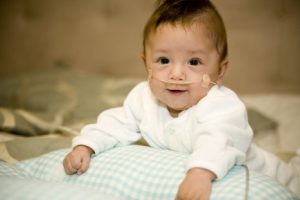 Baby Treatment: Contemporary NDT and Evidence-Based Intervention
Baby Treatment: Contemporary NDT and Evidence-Based Intervention Treating Infants and Families In the NICU and Beyond
Treating Infants and Families In the NICU and Beyond
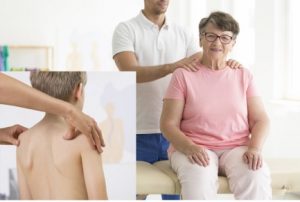 Mary Massery’s LINKED: Breathing & Postural Control Part 1
Mary Massery’s LINKED: Breathing & Postural Control Part 1 Handling Interventions: Using NDT to Increase Function and Participation in Children
Handling Interventions: Using NDT to Increase Function and Participation in Children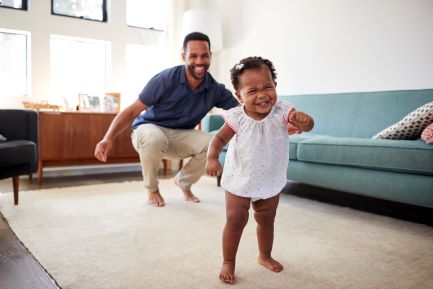 Don’t Wait for Gait! Therapeutic Evaluation & Treatment of Pediatric Gait
Don’t Wait for Gait! Therapeutic Evaluation & Treatment of Pediatric Gait Toe Walking: In-Depth Clinical Applications using an Etiological Approach
Toe Walking: In-Depth Clinical Applications using an Etiological Approach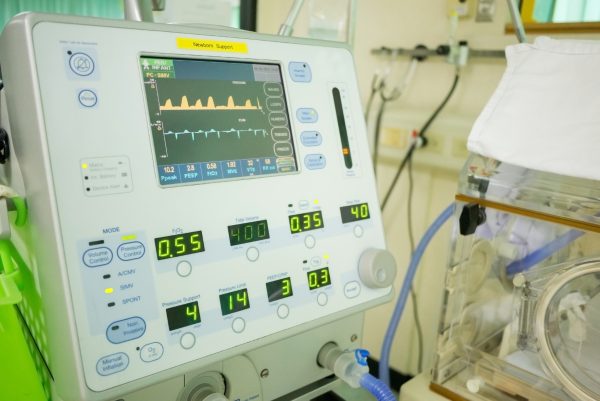 Breathe, Baby Breathe: Developmental Interventions for Infants with Tracheostomy Tubes
Breathe, Baby Breathe: Developmental Interventions for Infants with Tracheostomy Tubes
 Primitive Reflexes: Strategies to Promote Integration – Strengthening Foundational Skills
Primitive Reflexes: Strategies to Promote Integration – Strengthening Foundational Skills Treatment of Motor Issues in Children with Sensory Dysfunction Online Series
Treatment of Motor Issues in Children with Sensory Dysfunction Online Series Toe Walking: In-Depth Series
Toe Walking: In-Depth Series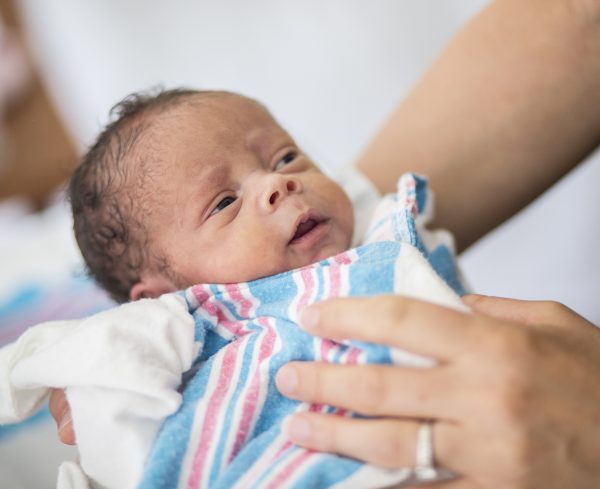 Infants with Cardiopulmonary Compromise: Bridging the Gap from Hospital to Home
Infants with Cardiopulmonary Compromise: Bridging the Gap from Hospital to Home